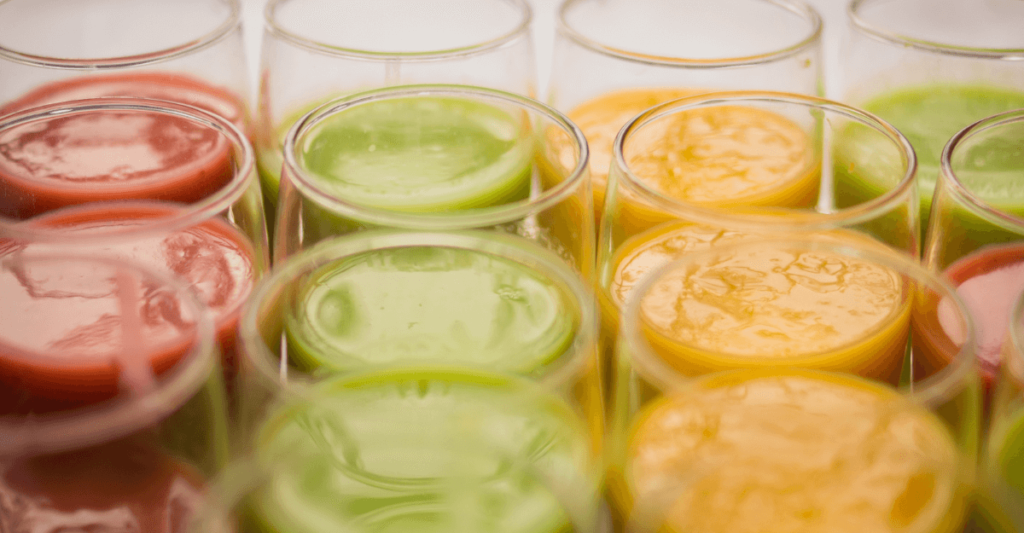Did you know that over 400 million cups of coffee are drunk every day in the United States? Yet, many people feel sleepy after drinking their favorite coffee. This has left many asking, “Why does coffee make me sleepy instead of awake?”
The Paradoxical Effects of Caffeine

Caffeine, found in coffee, is a complex substance. It can make you feel more awake and also more tired. This happens because of how it affects adenosine receptors in the brain.
Caffeine: Friend or Foe?
Caffeine blocks adenosine, a chemical that makes us sleepy. This blockage can make us feel more alert and energetic. But, it’s not always that simple. Too much caffeine or drinking it at the wrong time can make us feel sleepy instead.
Also explore: Red Bull vs Coffee (Which one is Best)
Adenosine Receptors and Caffeine’s Role
Caffeine’s effects come from how it interacts with adenosine receptors in the brain. Adenosine makes us feel sleepy by binding to these receptors. Caffeine does the same thing, but it blocks adenosine, making us feel more awake and focused.
But, our bodies can get used to caffeine over time. This can make adenosine receptors less sensitive. So, caffeine might not work as well, or it could make us feel sleepy, especially if we drink it at certain times or in large amounts.
“Caffeine is a complex substance that can have both energizing and sedating effects, depending on a variety of factors.”
Why Does Coffee Make Me Sleepy Instead of Awake?
If you love coffee, you might find it odd when it makes you sleepy instead of awake. This can happen for a few reasons, like when you drink it and the type of beans used.
Drinking coffee at the wrong time can make you sleepy. Caffeine takes time to work in your body. If you drink coffee too close to bedtime, it might not fight off your sleepiness. This can make you feel tired instead of alert.
The quality and roast of coffee beans also matter. Darker roasted beans usually have less caffeine, giving you less energy than lighter roasts. The type of beans and how they’re brewed can change how much caffeine you get and how it affects you.
“The timing and quality of coffee can greatly influence its effects on your energy levels. Understanding these factors can help you find the perfect cup that keeps you wide awake and focused.”
To avoid feeling sleepy from coffee, watch when you drink it and what kind of coffee you choose. Trying different roasts and brewing ways can help you find the right mix. This way, you get the energy boost you want without feeling tired.
Understanding how coffee affects sleepiness is complex, with many factors at play. Knowing these can help you drink coffee in a way that gives you energy. This way, you can beat coffee fatigue and stay alert.
Also explore: Why do Energy Drinks make me tired instead of Energized
Individual Tolerance and Circadian Rhythms
Have you ever seen how coffee affects you differently than others? This is because your body reacts to caffeine in its own way. Some people feel more awake, while others might not get sleepy even after a lot of coffee.
Your body’s internal clock, or circadian rhythms, also changes how coffee affects you. When you drink coffee, it can make a big difference. This is because it can mess with your sleep-wake cycle.
How Your Internal Clock Affects Caffeine’s Impact
Our bodies make a chemical called adenosine that makes us feel sleepy during the day. Caffeine blocks these receptors, making us feel awake. But how well it works depends on when you drink your coffee.
- Drinking coffee in the morning or early afternoon can make you feel more awake. It matches your body’s natural cycle of being alert.
- But drinking coffee too late can mess up your sleep cycle. It can keep you awake at night because caffeine blocks adenosine receptors for a long time.
“Understanding your individual tolerance and being mindful of your body’s internal clock can help you time your coffee consumption for maximum effectiveness.”
Knowing how your individual tolerance and circadian rhythms affect coffee timing can help you drink it at the best times. This can improve your energy, focus, and overall health.
Quality Matters: Coffee Roasting and Genetics
The effects of coffee can change based on the beans’ quality and how they are roasted. Your genes also play a part in how you process caffeine. Darker roasts usually have less caffeine, while lighter roasts have more.
This means the time you drink coffee and the type can affect your energy and sleep. Your body’s unique way of handling caffeine is also key. Some people feel more alert because they process caffeine faster. Others might feel tired because their genes affect how caffeine works on them.
Knowing about coffee roasting and how your body handles caffeine can help you pick the best coffee. Try different roasts and see how they make you feel. This can lead you to the perfect coffee that gives you energy without making you sleepy.
Also explore the Energy drinks with low Caffeine
FAQ
Why does coffee sometimes make me sleepy instead of awake?
Coffee can make you sleepy for several reasons. The timing of when you drink it, the type of coffee beans, your caffeine tolerance, and your body’s natural rhythms matter. These factors can change how coffee affects you.
How does caffeine work in the brain, and why can it have both energizing and sedating effects?
Caffeine blocks adenosine, a brain chemical that makes you sleepy. But, its effects can vary. It can wake you up or make you feel tired, depending on when you drink it and how your body reacts to it.
How does the timing of when I drink coffee affect its impact?
When you drink coffee matters a lot. Caffeine takes time to work. If you drink it too close to when you usually sleep, it might not help you stay awake.
How do my individual tolerance and circadian rhythms influence how coffee affects me?
Your body’s sensitivity to caffeine and your internal clock affect how coffee impacts you. Some people feel more caffeine’s effects, while others can handle more. Drinking coffee at different times of the day also changes its effects, as it interacts with your sleep-wake cycle.
Does the quality and roasting of coffee beans make a difference in how it affects me?
Yes, the quality and roasting of coffee beans matter. Darker roasts have less caffeine, while lighter roasts have more. Your genes also play a part in how your body processes caffeine, affecting how you feel.

